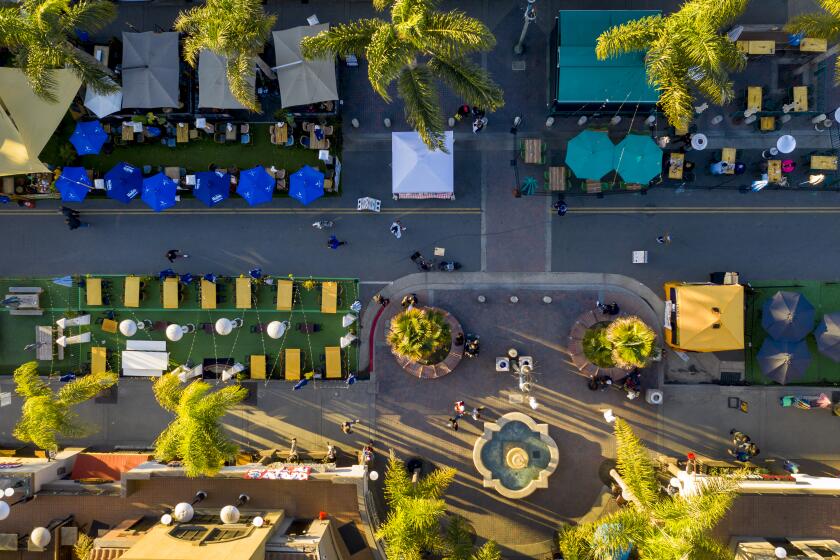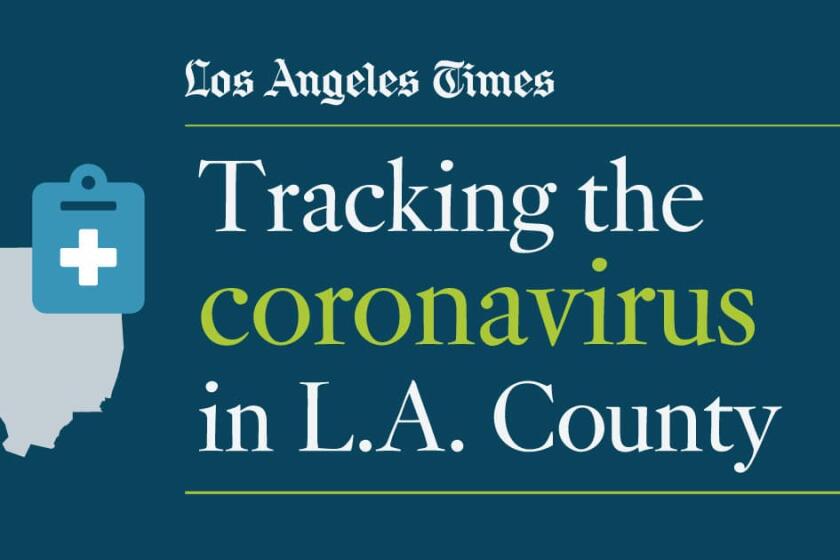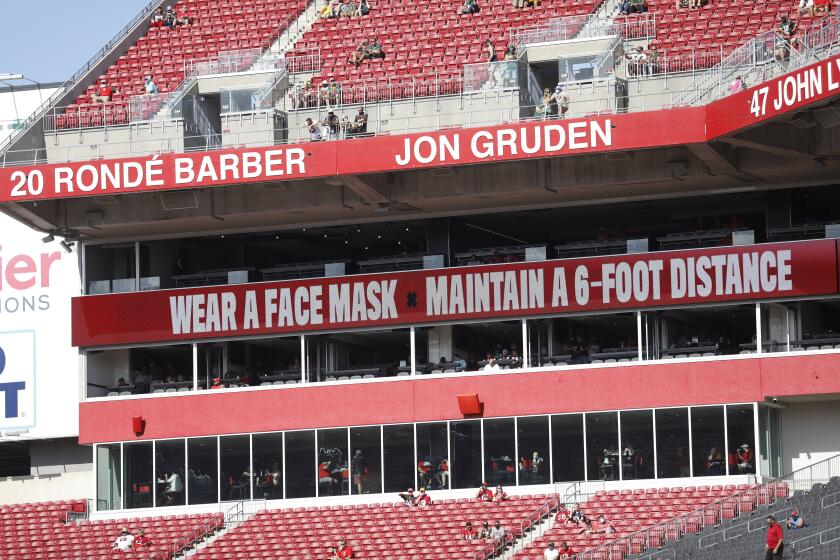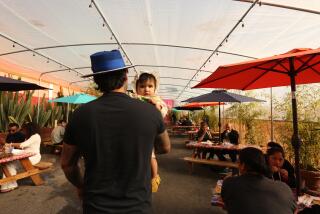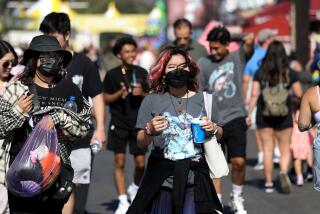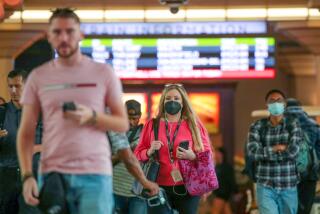Outdoor dining returns to L.A. County with new COVID-19 rules: TVs off, no more than 6 per table
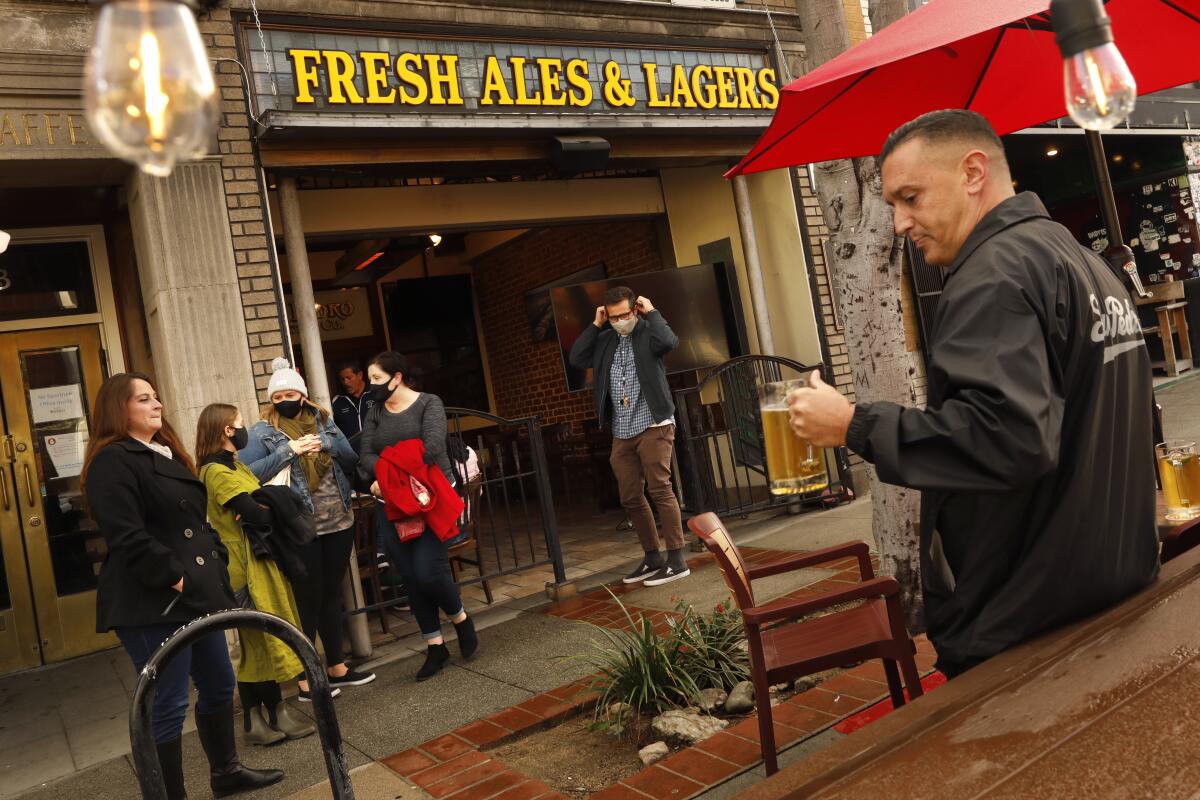
For the first time in more than two months, cooped-up Angelenos can now grab a bite to eat at one of the region’s restaurants — and stay awhile to savor it.
Los Angeles County officially lifted its ban on outdoor dining Friday, removing the proverbial padlock from restaurant patios following a lengthy public health closure.
The move represents not just a desperately needed boost for the county’s hospitality industry — which has been pummeled for months by closures and restrictions meant to thwart transmission of the coronavirus — but the relaxation of what proved to be one of the more controversial rules the county has put in place throughout the course of the pandemic.

Just as important, however, is what officials say the decision doesn’t represent: an imminent end to the COVID-19 crisis, or a sign that residents can cast aside the practices and protocols meant to stymie the spread of the deadly virus.
Under new county rules, outdoor dining and wine service seating must be limited to 50% capacity, with tables positioned at least eight feet apart.
Outdoor seating also will be limited to no more than six people per table — and everyone sitting together must be from the same household, the health order mandates.
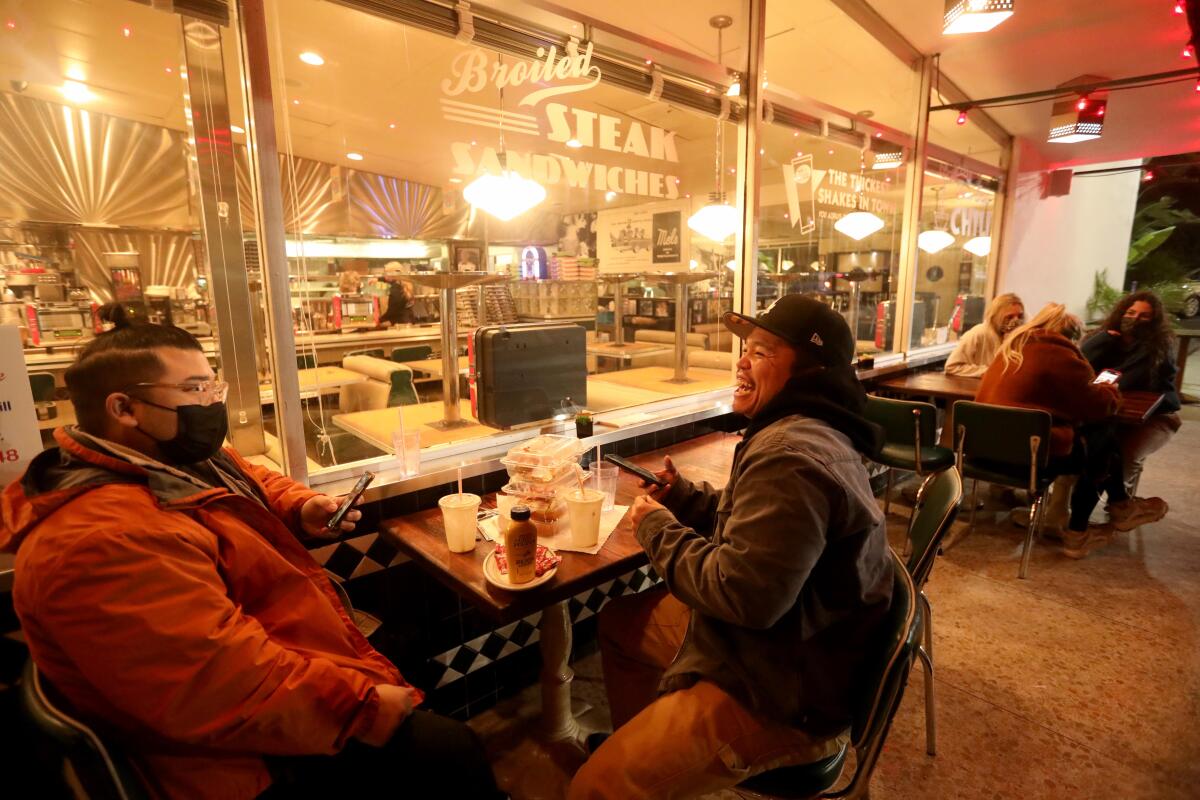
In a nod to concerns surrounding the Super Bowl and other sporting events that could keep audiences around for extended periods, the order also stipulates that “televisions or other screens that broadcast programming must remain off until further notice.”
Although the county has seen its COVID-19 case rates decline, “the risk of community transmission is still very high,” according to Health Officer Dr. Muntu Davis.
“There is no such thing as no risk at a restaurant or any other setting where people from different households are together,” he said during a briefing Friday.
At this point, he added, “we really do need to be cautious as we move forward, given we have a major sporting event” coming up, and it’s not uncommon for people to be “yelling, shouting, screaming during the excitement of a game.”
Should conditions improve, Davis said the county will consider changes to its rules as warranted.
“Right now, we have to ease into these reopenings,” he said. “We want to see these cases continue to come down, our hospitalizations continue to come down. Our healthcare workers have been doing a great job ... they are tired.”
It didn’t take long for customers to hit the restaurant patios and other outdoor dining spaces. Some were not aware of the health order that prohibited dining with people not in their household.
Abby Hill broke her umbrella, so by the time she arrived at the Engine Co. No. 28 restaurant, she was unusually wet. On the patio of the downtown L.A. eatery, the mood reflected the casualness of happy hour. And the systems analyst, visiting from Arizona, was meeting an old college friend.
“Look at this cool place,” she said, motioning to the entrance of the historic landmark, first used by the city’s Fire Department and later as a credit union. She grabbed her phone for some selfies, trying to ignore her messed-up hair, before scanning the discounted drinks. She decided on coffee, followed by the pineapple, cucumber and strawberry margarita taster trio.
Her friend, Aaron Sanchez of Pasadena, downed some beers. He said he’s thrilled “these spots are opening up again because we need more venues to hang out beyond our kitchen and television. I swear, it’s sad not having choices when you are young and single and having to be quarantined.”
The largest table in the covered patio seated just four, but James Chen was already mentally calculating bringing his girlfriend and others, perhaps for Valentine’s Day. He texted a reminder to himself to ask about reservations.
“I thought about a picnic on the beach, but I’m worried too many people are going there to escape on Saturday or Sunday,” he said.
The company that owns Engine Co. No. 28 has sued the L.A. County Department of Public Health to contest the previous order banning outdoor dining.
Lifting the ban on outdoor dining is one of the clearest signs yet that the county is heading in a more positive direction. L.A. County health officials originally suspended the offering in late November amid ballooning numbers of new coronavirus infections.
Shortly after, California handed down a new regional stay-at-home order covering all of Southern California, which widened the outdoor dining prohibition and imposed a slew of other restrictions.
Here is what you can do — and what you should not do — as COVID-19 restrictions are eased in Los Angeles County.
With conditions improving, Gov. Gavin Newsom announced Monday that those orders would be canceled statewide. Many restaurants in affected areas were able to reopen for outdoor dining earlier this week, but L.A. County held off — with officials saying they wanted to craft additional safety measures.
In the weeks since the outdoor dining ban was put in place, some critics demanded to see the data justifying it and questioned whether its benefits warranted the economic pain restaurants would suffer.
County health officials, however, have said the danger of coronavirus transmission is heightened during any activity when people are spending extended periods of time in close proximity with those outside their homes while not wearing masks.
Along with restaurants, L.A. County breweries may also reopen for outdoor dining, and wineries can offer outdoor tastings.
The latest maps and charts on the spread of COVID-19 in Los Angeles County, including cases, deaths, closures and restrictions.
Recent improvements, though undoubtedly welcome, bely the magnitude of the latest surge.
In mid-November, county health officials warned they would implement the outdoor dining ban if the five-day average of new coronavirus cases hit 4,000, or if hospitalizations topped 1,750 per day.
Those thresholds seemed almost unthinkable at the time, as they would have represented a return to the numbers of summer’s virulent wave.
Now, however, getting cases and hospitalizations to those once-threatening levels would represent significant progress. Over the last five days, the county has averaged more than 6,500 new daily coronavirus cases, according to data compiled by The Times.
That has tumbled significantly from a few weeks ago but is still higher than any level seen before the latest surge.
L.A. County and California are seeing promising declines in coronavirus cases and hospitalizations, but progress remains precarious and could be eroded, officials say.
COVID-19 hospitalizations are also moving downward at a steady clip, falling 25% countywide over the last two weeks. However, the number of Angelenos hospitalized for COVID-19 Thursday — 5,669 — is still more than twice as high as the summit of the summer surge.
Officials acknowledge the wider reopening of the economy could imperil progress. The coronavirus is a communicable disease and can spread widely and quickly as people more regularly come into contact with one another without taking precautions, such as wearing face coverings or keeping physical distance.
Unless businesses and residents stay true to the protocols in place, officials say the county risks not being able to move forward as quickly and widely as everyone would like.
“It really is going to be up to everyone, as most of this has been, in terms of doing what’s right,” Davis said.
More to Read
Sign up for Essential California
The most important California stories and recommendations in your inbox every morning.
You may occasionally receive promotional content from the Los Angeles Times.
